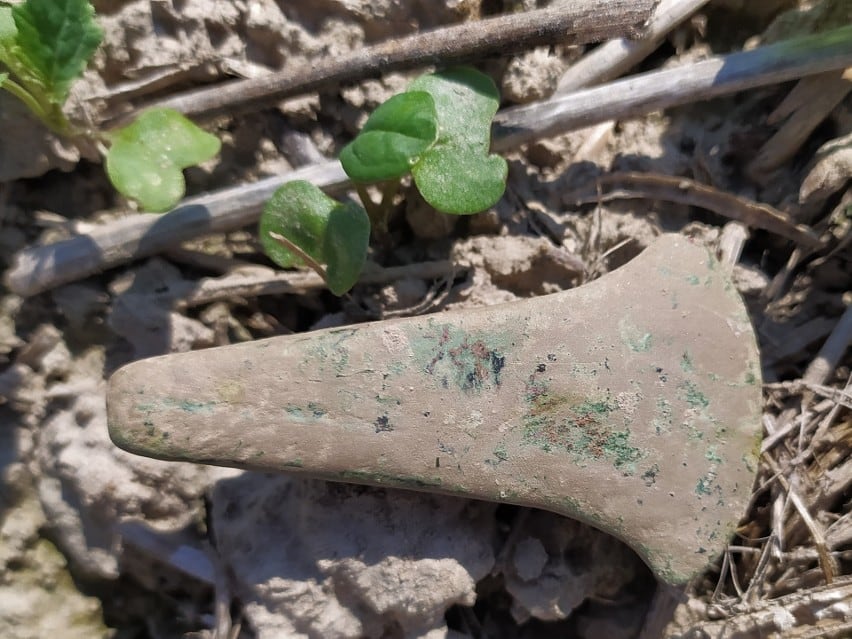The oldest copper axe in Poland discovered during a club detector event
Categories: Nálezy nejenom s detektorem kovů ve východní Evropě
Last August, a unique copper axe from the 4th to 3rd millennium BC was discovered near Matcze, Poland, near the border with Ukraine, with the help of a metal detector. It is the oldest ever discovered in Poland and quite possibly the oldest copper artefact ever discovered on Polish territory...
Detectorists at a mass club event of the Kresow Society searched the site with the permission of the Lublin Provincial Heritage Office. The aim was to fully document the findings in the desired location and to exclude any archaeological finds. During the action one of the detectorists - Krzysztof Gajos discovered a small copper axe. He recorded the exact GPS position and handed over the axe to the Zamość Monument Protection Office.
The axe is 7.4 cm long and has a fan-shaped blade with a width of 4.1 cm. The back of the axe is rectangular and slightly convex, measuring 9x6 mm. It is 10 mm thick at its thickest point. Its analysis was carried out by Wiesław Koman, an archaeologist from the WUOZ branch in Zamość. However, the analysis of chronological and cultural affiliation ruled out that it belonged to Bronze Age cultures, because this artefact did not correspond in any way to the known typologies of axes of that time
"Moreover, our axe was made by a quite simple 'primitive' casting method, in a flat-convex form, no longer used in advanced Bronze Age metallurgy. It was therefore necessary to pay attention to the earlier Neolithic period. Unfortunately, there is no such equivalent in the inventories of Neolithic cultures from Poland," the Lublin conservator said on social media.
The puzzle was solved thanks to archaeological findings from Ukraine in the publication of an identical copper axe discovered in the town of Szczerbanivka in the Kiev region. Accompanying pottery fragments allowed it to be assigned to the Tripolitan culture and dated to the late period of this culture, which operated mainly in the wider areas of present-day Bulgaria, Romania, Moldova and western Ukraine.
"It is true that we have recorded finds of Tripolitan culture pottery from Gródek in Hrubieszów. And the presence of this axe in nearby Matcz can be considered as confirmation of the settlement of the people of this culture also in eastern Poland. This thesis can also be confirmed by the separate discovery of a copper axe in Wożuczyn, about which Dr. Jan Gurba and which should now be in the Institute of Archaeology of the Marie Curie-Skłodowska University in Lublin," the conservator explained and added: "So we are probably dealing with the oldest discovery of a copper product in Poland, which would be a great sensation!"
Roman Nemec
Sources: scienceinpoland.pap.pl, naukawpolsce.pl, kurierlubelski.pl





The article is included in categories: